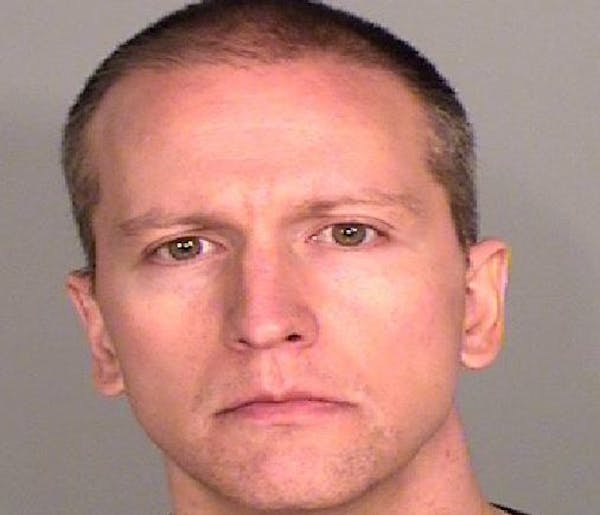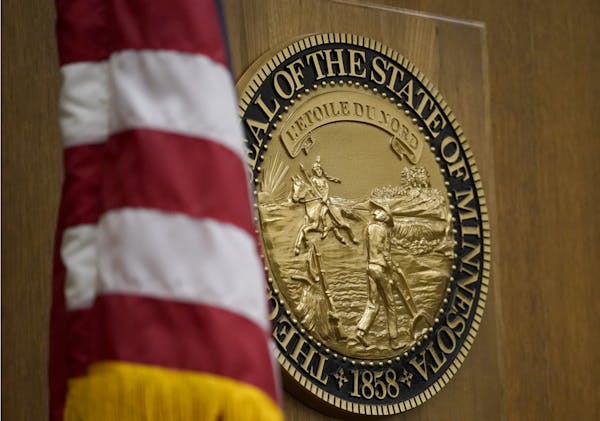The Derek Chauvin murder trial is staying put and staying on schedule.
Those are the rulings Friday from Hennepin County District Judge Peter Cahill on defense motions for a change of venue and continuance in the case against the fired Minneapolis police officer accused of causing the death of George Floyd late last spring.
Once juror questioning was cleared to resume Friday, one more was chosen. But the day ended with Judge Peter Cahill saying at least two more jurors will be chosen for the panel, which includes two alternates for a total of 15, in case one juror drops off. At least 16 jurors can be chosen. Jury selection resumes Monday at 9 a.m.
"I think we're going to try and pick two more so that we definitely have 14 come March 29," Cahill said.
Cahill weighed both significant options for much of this week in the wake of the well-publicized announcement of last week's record $27 million settlement between the city of Minneapolis and Floyd's family. It led to the dismissal of two seated jurors who said it impacted their viewpoints.
"Unfortunately, the pretrial publicity will continue no matter how long we continue [the trial]," the judge said.
However, he acknowledged the impact of the city's settlement on the case.
"I'll be very honest, when it was first brought up by the defense I thought they were overstating it," he said. " … I was a little shocked when we called back the seven of the nine jurors that had been seated and two of them basically said they could not be fair and impartial any longer."
Regarding a change of venue, the judge said, "I don't think there's any place in the state of Minnesota that has not been subjected to extreme amounts of publicity in this case. … With that, we'll continue with jury selection in this case and in this county."
Attorney General Keith Ellison, whose office is leading the prosecution of Chauvin, said before a 13th juror was added, "The court has taken careful, considered steps to mitigate the effects of pretrial publicity that make a continuance and change of venue unnecessary.
"A week ahead of schedule, both sides have now agreed on 12 jurors, more than half of whom were selected since early last Friday afternoon [when the settlement was announced] and all of whom have been carefully screened for impartiality in the face of inevitable pretrial publicity not only in Hennepin County, but in every part of Minnesota."
On other motions Friday, Cahill ruled that only portions of the events surrounding Floyd's drug arrest in Minneapolis in May 2019 are admissible in this trial, namely any evidence or testimony that directly relates to his medical condition after having a police officer point a gun at him and taking him into custody.
Not to be admitted from the 2019 arrest, the judge said, is anything about his emotional behavior such as calling out for his mother, something he did in both encounters with police. He also blocked Floyd being
The judge said he will allow during the trial the admission of a portion of the body camera video from the 2019 arresting officer, Floyd's blood pressure results at the scene, a suspected illicit drug pill in his car and his statements to the paramedic for the purpose of her diagnosis.
"Cause of death is clearly an issue here," Cahill said, noting that the defense and prosecution are at odds in this area.
With those motions settled, it was back to jury selection Friday morning. A 13th juror was chosen, a woman who has worked in customer service and said she is an animal lover, "especially dogs."
Attorneys on both sides questioned her about her volunteering on behalf of the homeless and concern for affordable housing.
She said she saw the oft-mentioned bystander video of Floyd's arrest and wrote in her juror questionnaire months ago, "This restraint was ultimately responsible for Mr. Floyd's demise."
That said, she pledged under defense scrutiny Friday that she could presume Chauvin innocent as the law requires her to do.
The prosecution saw the woman as having a fairly favorable view of police after she said that if a suspect is "not listening to what the [officer's] commands are, obviously something needs to happen."
She was more critical of the criminal justice system once cases move into the courtroom, saying, "You have a better chance of proving your case if you have a private lawyer, than if you have a public defender, and there are instances when innocent people are convicted.
Through Friday, there are six people of color and seven white people among the 13 jurors chosen. Two will be alternates.
Those chosen are: A multi-race woman in her 20s, a multi-race woman in her 40s, two Black men in their 30s, a Black man in his 40s, a Black woman in her 60s, four white women in their 50s, a white woman in her 40s, a white man in his 30s, a white man in his 20s.
The judge excused Friday morning's second and third jury candidates after both expressed doubts that they could maintain their impartiality.
In the afternoon, the prosecution used one of its discretionary strikes to dismiss the day's fourth prospective juror. The judge then excused the next possible juror, a woman who revealed some private information once the livestream audio was muted and the news media sent out of the courtroom.
The defense then spent a strike and dismissed one man, while the judge accepted Nelson's request and excused the day's final candidate from the bench. That forced jury selection to spill into Monday morning at 9 a.m.
Opening statements and testimony are scheduled to begin March 29 and last two to four weeks.
Chauvin is charged with second-degree murder, third-degree murder and second-degree manslaughter. The other defendants in the case — J. Alexander Kueng, Thomas Lane and Tou Thao — are scheduled to be tried in August on charges of aiding and abetting murder and manslaughter.
Chauvin's attorney, Eric Nelson, motioned Monday to postpone the trial and move it to an unspecified county because he felt the settlement had unfairly tainted the local jury pool. The surprise development occurred a week into Chauvin's trial.
Nelson raised the issue again Thursday after city officials held a news conference that morning and explained the timing of the settlement's announcement. The briefing was part of a regular weekly media availability the city began holding before the trial began.
"I would note that the city of Minneapolis indicated that the timing was of the essence, yet the agreement has not been finalized and will not be finalized for month," he told Judge Cahill. "It raises the question of whether the announcement was necessary, regardless of timing. I just wanted to make the court aware that this is an ongoing public discussion that the mayor and city attorney are engaging in."
Legal scholars and lawyers said they expected Cahill to deny Nelson's requests given the reach of Floyd's story and the two weeks the court has already invested in selecting jurors. Chauvin's trial started March 8 and is scheduled to last up to about two months.
A change of venue would have forced the court to move the trial to a less racially diverse county, and a delay would pose financial and logistical hurdles, said Ted Sampsell-Jones, a professor at Mitchell Hamline School of Law.
Chauvin is white; Floyd was Black. Floyd's death sparked a racial reckoning across the world, and Chauvin's trial is the state's first trial of a white officer charged with killing a Black civilian on the job.
Prospective jurors were summoned for Chauvin's trial about three months ago and were asked to fill out a lengthy questionnaire. They were also ordered to avoid news of the case, but nearly all who have been questioned one-by-one in court have said they avoided the news but inadvertently heard some TV reports, saw some headlines or were drawn into conversations with friends about the case due to is ubiquity. (They were also ordered not to tell anyone they were being summoned to potentially serve on Chauvin's jury.)
chao.xiong@startribune.com • 612-270-4708
Twitter: @ChaoStrib
paul.walsh@startribune.com • 612-673-4482
Twitter: @walshpj

Trail section at one of Minnesota's most iconic spots closing for rehab

Will 'shotgun only' zone for deer in southern Minnesota be abolished?

Four Minnesotans catch salmonella in outbreak linked to basil sold at Trader Joe's


